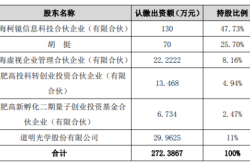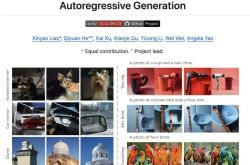Who is hyping the ST sector, sparking a surge in trading limits?
![]() 11/14 2024
11/14 2024
![]() 559
559

On November 14, the ST sector surged unexpectedly, with *ST Kaiyuan surging over 10%, and ST Lingda, ST Xulan, *ST Jiuyou, *ST Pengbo, *ST Boxin, ST Zhongdi, ST Jinke, ST Tianbang, and others hitting their daily trading limits.
Such significant fluctuations are indeed challenging for average investors to grasp.
Moreover, the A-share market is no longer a haven for struggling companies.
Under the comprehensive registration system, companies lacking profitability have no place in the A-share market. In the future, more new companies will join, and more will exit. It has shifted from a "strict entry, loose exit" policy to a "loose entry, loose exit" one.
Strengthening delisting efforts is a long-overdue move to restore order.
Fortune magazine once reported that the average lifespan of small and medium-sized enterprises in the US is less than seven years, and that of large companies is less than 40 years. In China, the numbers are even more alarming, with an average lifespan of only three years for SMEs and 7-8 years for large groups.
This implies that even a thriving enterprise will eventually decline and fade away given enough time. Furthermore, if a company remains in the stock market for too long, it will ultimately do more harm than good to the capital market over time.
Therefore, continuous renewal is essential to maintain the vitality of the capital market, which is also a crucial prerequisite for the sustained high-quality development of the US stock market.
Professor Craig Deutsch from the University of Toronto wrote an article in the Journal of Financial Economics studying delistings in the US stock market. He noted that from 1975 to 2012, the total number of IPOs on the three major US stock exchanges (NYSE, NASDAQ, AMEX) was 15,922, while the number of delistings during the same period reached 17,303 (including mergers, acquisitions, and voluntary delistings).
In other words, the US stock market has consistently had more delistings than IPOs over the past few decades. More strikingly, approximately 80% of listed companies in the US have delisted over the past 40 years.
In contrast, as of the end of 2021, the number of listed companies on the Shanghai and Shenzhen stock exchanges exceeded 4,600, while the total number of delisted companies was only 163.
Maintaining a system of survival of the fittest ensures the overall profitability of the entire market.
Zhongtai Securities conducted a statistical analysis for the period from 2009 to 2019, counting the number of listed companies with an ROE above 15%. Among them, there were only 18 A-share companies but 161 US companies. When the ROE threshold was lowered to 10%, the number of A-share companies meeting this criterion was 54, while the US had 298.
This excellent performance led to better market performance, and investors also received substantial returns.
After the 2008 financial crisis, the US stock market entered a bull market that lasted more than a decade, with the Dow Jones Industrial Average rising from a low of 6,470 points to nearly 37,000 points in 2021, representing nearly a fivefold increase.
On the other hand, the Shanghai Composite Index surpassed 3,000 points over a decade ago but has since hovered around that level, even as China's GDP has tripled during this period. While the sluggishness of China's stock market cannot be solely attributed to the quality and vitality of listed companies, it is undeniably a significant factor.
Moreover, due to the limited number of delistings, many struggling companies can always "survive against all odds." This special "turnaround from adversity" is even favored, resulting in a long-term market atmosphere of "speculating on junk stocks." High-quality companies fail to receive due attention, while low-quality ones attract significant buzz, severely distorting and deviating from the original intention of the capital market serving the real economy.
Simultaneously, the "strict entry, loose exit" nature of the capital market is very similar to the college entrance examination system, where students study hard in high school but relax completely once they enter university. This is also reflected in listed companies, which strive to achieve results before IPO but quickly change their profitability profile after listing.
In the long run, without the pressure of delisting, many companies become complacent, eventually leading to stagnation. This significantly undermines the vitality of market economy competition.
Only a "fluid" stock market can ensure a "resilient" capital market.
Through frequent entry and exit, the stock market retains only the most dynamic enterprises in the entire economic world. This not only benefits economic development but also rewards investors, creating a win-win virtuous cycle.
Stringent delisting policies are a dark cloud hanging over struggling companies but bring clear skies to the entire market.
As of April 30, 24 companies in the A-share market have been locked in for delisting, with nine having already completed the process.
The era of speculating on junk stocks is over, and investors must carefully review their holdings.
Disclaimer
This article involves content related to listed companies, based on the author's personal analysis and judgment according to information publicly disclosed by listed companies in accordance with legal requirements (including but not limited to temporary announcements, periodic reports, and official interaction platforms). The information or opinions in this article do not constitute any investment or other business advice. Shizhi Guanchan does not assume any responsibility for any actions taken based on this article.
——END——







